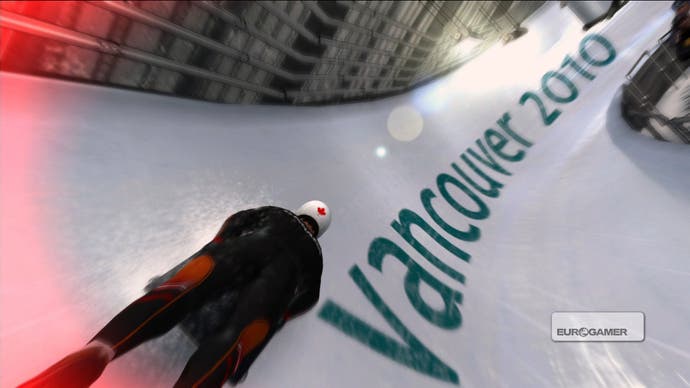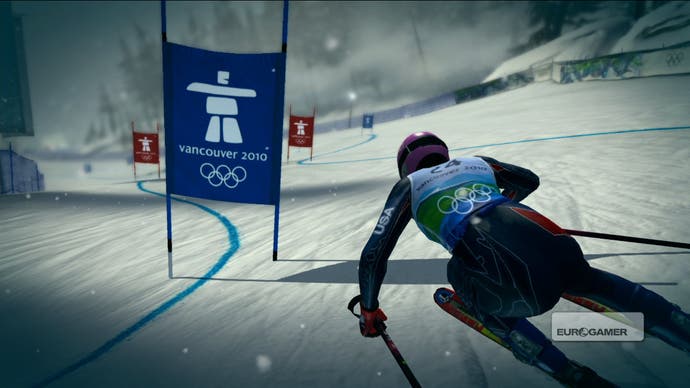Vancouver 2010
Thin ice.
It's unfortunate that this frosty sports simulation has arrived just as everyone in Britain is thoroughly sick of bloody snow, but unlucky timing should be the least of its worries. The button-mashing, stick-waggling sports genre was never likely to reveal many hidden depths, but even by the limited standards of this peculiar subset of gaming Vancouver 2010 is a slender experience.
Some of the blame for its malnourished state can be directed at the event itself, which is a pale icy shadow of its more famous Olympic counterpart. Lower in profile, narrower in scope, it doesn't offer much room for a developer to impress: while the game of Beijing 2008 overstretched itself with 38 events, ranging from judo to javelin, Vancouver 2010 can only offer 14, the majority of which involve sliding down mountains as gracefully as possible.
With so little variety, the simplistic gameplay soon becomes a problem. Unless you're pathologically addicted to leaderboards, you will have accumulated lots of silver medals and exhausted the game's shallow charms before the opening ceremony of the real thing has finished.
That's not to say effort hasn't been made in some areas. The animation is impressive, presumably motion-captured given the realistic tics and twitches that the virtual athletes display while waiting for the events to begin, and the crisp white snow and azure blue sky fit in well with SEGA's clean arcade aesthetic. The game looks lovely and inviting.

Most of the events are even well-implemented in terms of control. They're just ill-suited to videogames or castrated by the need to be a serious official game of a serious sporting event. It may be the first game in history to feature snowboarders who jump sensibly and with the minimum of fuss.
Apart from an incongruous and tepid pop-punk soundtrack the whole game feels starchy and dry, as if anything resembling actual excitement or personality would be the equivalent of loudly cracking off an enormous echoing fart through the sacred rings.
Such reverence is strange, since the game never once feels Olympian. There's no structure to the game - just a bland list of events that can be played in practice or competition modes, in whatever order you fancy. You get a little national anthem scene for the winner of the gold after each event, but there's absolutely no sense of occasion, no ceremonial highs or even the illusion that you're taking part in a major global competition.

Everything feels small, but it's the repetition that sinks it. When you start the first skiing event - Men's Downhill - the effect is impressive. By the time you've played through Men's Super-G, Ladies Giant Slalom and Ladies Slalom, the impact has dimmed. After a few more turns, you'll be stifling a yawn and crying out for something more.
There are a mere handful of courses shared between the various downhill events and, once you've spent an hour or so mastering their familiar corners and curves, they become a pointless exercise in the most basic time trial mechanics imaginable.


